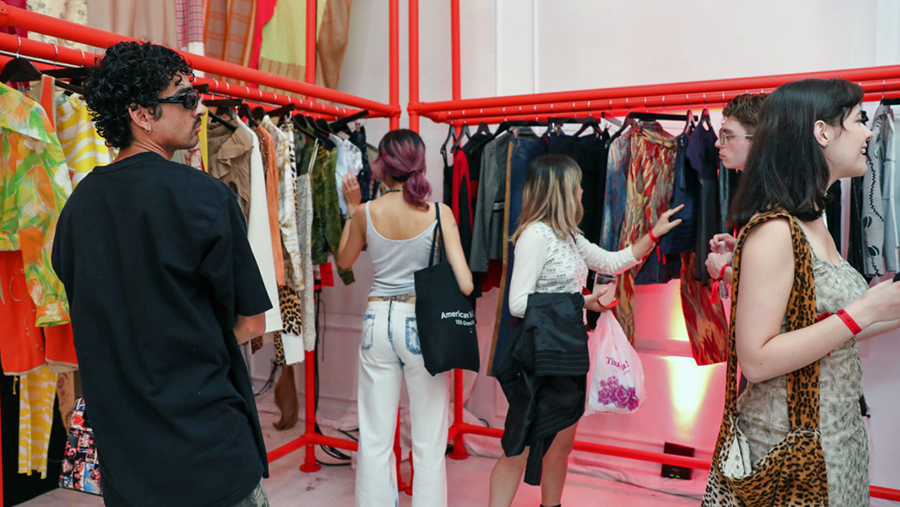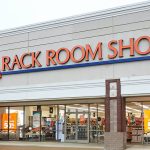Consumer Edge is reporting new data highlighting the rapid growth of the resale market, which includes platforms enabling consumers to buy and sell merchandise directly to one another and secondhand sales by brands and traditional retailers.
The findings, collected by Consumer Edge, show that resale spending outpaced traditional retail in 2024, driven by budget-conscious consumers and an increased focus on sustainability amid an uncertain economic environment.
“This outperformance against the broader apparel, accessories and footwear industry widened later in the year,” Consumer Edge said in its report summary. “Consumer Edge’s consumer spending data revealed that resale spend growth accelerated sharply from a summer low of a 3 percent decline to reach its highest growth of the year in October at 5 percent growth, signaling strong momentum heading into 2025 as consumers continue to seek value and uniqueness in their purchases.
- Grailed and Depop lead resale market growth as consumers opt for sustainable, budget-friendly options.
- E-Commerce investments help resale brands Goodwill and Clothes Mentor meet consumer demand.
- Resale growth is largely driven by middle-income and younger shoppers.
Other key findings include:
- Pure-play is on the rise. Resale companies that focus exclusively on secondhand sales, known as pure-play platforms, have gradually grown in the share of the overall apparel, accessories and footwear industry as many consumers look for alternatives to traditional retail. Brands like On and Banana Republic have introduced resale platforms to compete with this trend, offering discounted secondhand pieces. However, these efforts have not yet dented the momentum of resale-exclusive platforms, which continue to attract a growing consumer base.
- Social and peer-to-peer platforms also drive growth. Peer-to-peer marketplaces such as Grailed and Depop led the charge in 2024. Grailed’s year-over-year spending growth exceeded 180 percent, while Depop grew nearly 90 percent, driven by the companies’ convenience and social appeal. Other strong performers included Vinted and Vestiaire Collective. Omni-channel brands that invested in e-commerce, like Clothes Mentor and Goodwill, have also grown by meeting consumer demand for affordable and sustainable goods.
- Young and middle-income shoppers bolster the resale industry. Consumers ages 25 to 44 increased their share of resale spending by over 6 percent year-over-year, with middle-income earning consumers ($40,000 to $100,000) emerging as a key growth driver. Resale brands Goodwill and Salvation Army, which cater to budget- and eco-conscious shoppers, are more than well-positioned, especially as the holiday season winds down and consumers refocus on value-driven price points.
“Resale has established itself as a critical growth driver in the apparel, accessories and footwear industry,” said Michael Gunther, VP and head of Insights at Consumer Edge. “In a challenging economic climate, brands that recognize changing consumer sentiment and align with demand for affordability and sustainability are well-positioned to thrive in this dynamic market.”
Image courtesy Depop
















